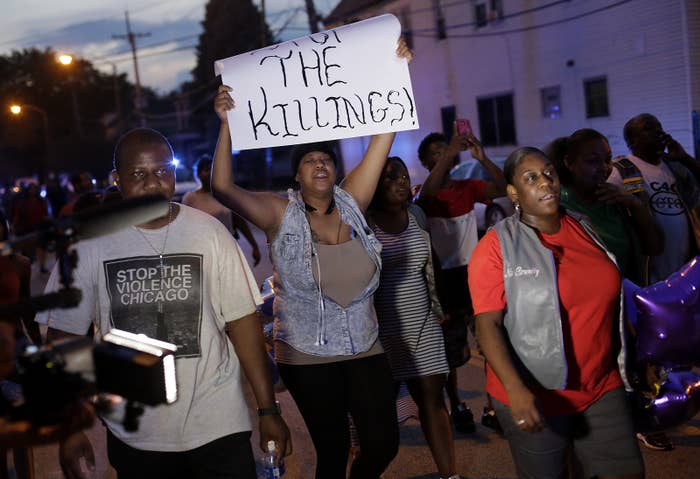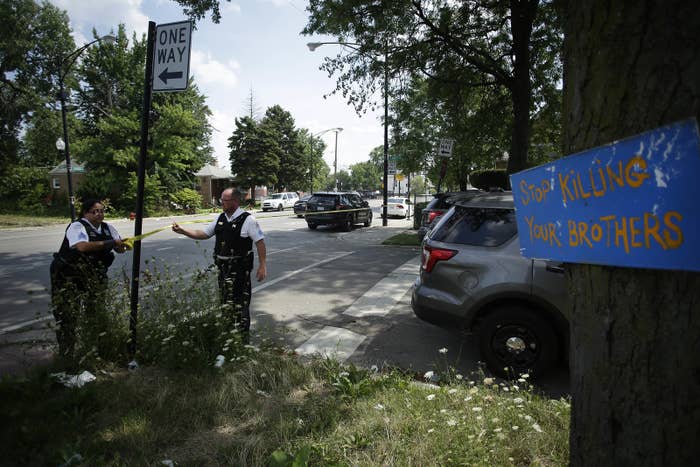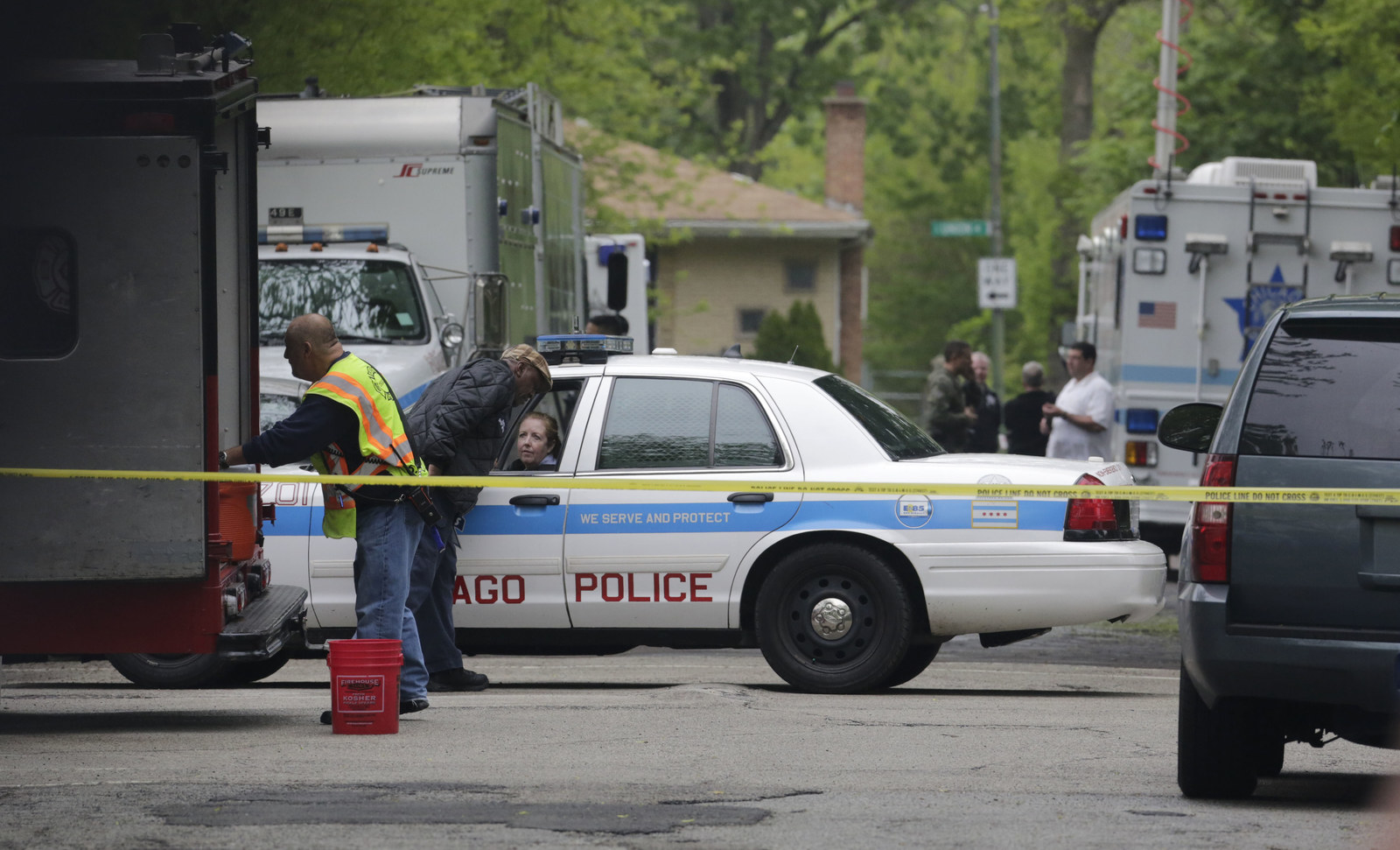
The nationwide homicide rate is expected to soar by double digits in 2016 after a huge spike in the number of killings in Chicago tipped the scale for the entire country, according to a study published Monday.
The number of homicides in the US are expected to increase by 13% this year, but according to a study by the Brennan Center for Justice at NYU School of Law, roughly half of those killings can be traced back to the Windy City.
Other large cities, including Los Angeles, Detroit, Washington, DC, and Baltimore, are projected to see a drop in homicides.
The study suggests that despite claims of rising crime across the country, rates have remained relatively stable in most areas, one of its authors told BuzzFeed News. It also highlights the acute problems facing the city of Chicago as it tries to address one of the deadliest years it has faced in recent history.
As of Friday evening, the city has seen 524 homicides this year, according to the Chicago Tribune.
The authors of the study evaluated crime statistics for 30 of America's largest cities and using crime rates and other information, projected what their crime rate would be by the end of the year.
"In this group of 30 cities, it's one city," Ames C. Grawert, one of the three authors of the study, told BuzzFeed News. "Chicago is driving 50% of the murder increase."

The Brennan Center for Justice conducted a similar study last year and found three cities — Baltimore, Washington, DC, and Chicago — were also tipping the scales in the homicide rate last year.
This year, however, Washington, DC, and Baltimore are expected to both see a drop in the number of homicides by about 10%.
Similar dips and rises in crime rates are common, which is why criminologists argue against comparing year-to-year crime numbers to try to explain trends. And despite political bluster about Baltimore facing a crime spike, Grawert said, the city will likely see a drop in crime this year.
"One year's data is not enough to project a trend," he said. "This underscores that most cities are seeing year-to-year fluctuations."
Overall, crime across the country is expected to rise 1.3%, according to the report, which the authors of the report said is consistent with yearly fluctuations.

The increase was also isolated to the 30 largest cities in the country, which may not necessarily illustrate the crime patterns of other smaller cities.
Despite the increase, the report states crime and homicide rates for the country remain low nationwide.
"Based on this data, the authors conclude that there is no evidence of a national murder wave," the report states.
However, the steep increase in killings in the streets of Chicago has raised concern.
The study estimates that by the end of the year, the US will see 496 more killings than in 2015. More than 230 of the killings, according to the study, will happen in Chicago alone.
The study doesn't offer conclusions as to why Chicago is facing such a high murder rate this year, but it does offer two possibilities:
About 80% of the suspects arrested in the city's shootings have been linked to the police department’s “Strategic Subject List," a compilation of repeat gun offenders that have been flagged by the department.
About 70% of shooting victims have also belonged to the department's list, suggesting that it is not just one city that has tipped the scales in the country's overall murder rate, but a small segment of the city's population that has raised the number of killings.
The study also points out that in the last eight years the Chicago Police Department has lost 300 detectives from its ranks, lowering the homicide clearance rate — where an arrest is made or suspect is identified — to about 46%. The city's clearance rate is nearly 20% lower than the national average.
"It's remarkable that such a small group of people is driving a trend across the country," Grawert said.
